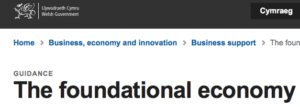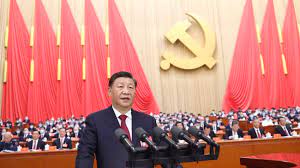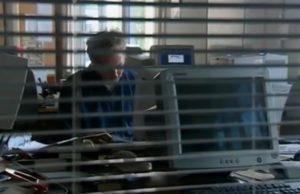- Bombs away! - 28th February 2026
- Massaging the truth - 27th February 2026
- ‘It’s the new economy, stupid…’ - 27th February 2026

During 23 years with the BBC, and a 41 year journalistic career (when he was trained to use clear and simple language, avoiding jargon), our Editor, Welshman Phil Parry, has always known that economic factors are central, and this is now put centre stage by the new emphasis on ‘tariffs’ today, as well as by the Welsh Government’s policy of supporting the ‘foundational economy’, when broad brush economic plans are the responsibility of the UK Government so these are just tweaks.
It is always important for journalists to call out policy-makers.
 The public need to be told that a much-hyped plan is actually BAD, or that it may have a negligible effect.
The public need to be told that a much-hyped plan is actually BAD, or that it may have a negligible effect.
So it is today with all this talk from politicians that ‘goods should be made at home’, and a Welsh Government (WG) policy announced a few weeks ago of backing a ‘foundational economy’.

The reality is that it is open trade (governed by international rules) that makes societies wealthier, and while the targets helping a ‘foundational economy’ are laudable, they are EXTREMELY minor because the future of the UK economy (of which Wales is a part) is the responsibility of Rachel Reeves the Chancellor of the Exchequer.
These things (particularly the first) are in the news all the time now!
But take Covid-19 vaccines as a representation of how this economic nativism is simply absurd, because they have been on everyone’s minds recently.

One estimate is that the typical vaccine plant uses 9,000 materials from 300 suppliers across 30 countries.
We are also told about our ‘dependency’ on semi-conductors made by the Taiwanese firm TSMC.
The truth is that TSMC is itself dependent on the Dutch firm ASML to make the machines that print its chips, and the Dutch company depends on trading with many other states (including the UK).


One study has found that the average family in the United States of America (USA) is actually $20,000 a year BETTER OFF because of global trade.
So all this talk from Donald Trump, Xi Jinping and others of protecting native companies, is complete NONSENSE!.
President Trump’s moves on Tariffs are well known, but far from being clear and firm on them, he seems to be all over the place.
Last week, for example, he agreed to extend a deadline to negotiate tariffs with the European Union (EU) by more than a month.

The previous month, he announced a 20 per cent tariff (or import tax) on most EU goods, but later cut this to 10 per cent.
But on Friday, he seemed to be angered by the slow pace of talks and threatened to raise the figure to 50 per cent by June 1.
However on Sunday, he wrote on social media that he had decided, in fact, to push his deadline back to July 9, after a “very nice” talk with Ursula von der Leyen (President of the European Commission[EC]).


But he’s not the only one – and others seem firmer in their misguided views.
For instance Mr Xi has said repeatedly that China must make stuff in-house, and not be reliant on the capitalist west.
He refused to let Western vaccines into his country, and one of his mantra statements is: “The rice bowls of the Chinese people must be firmly in our own hands”.
But the other new ‘policy’ in Wales offering support to the ‘foundational economy’ is almost as bad as ‘decisions’ like these because it offers voters a panacea, when the reality is that it will do virtually nothing and the picture is very complicated.

The plans sound good but it is the responsibility of journalists like me to interpret them properly, so that Welsh families can make an informed decision.
The WG declare on the internet with a helpful graphic: “Supporting the foundational economy is a key commitment in our Economic resilience and reconstruction mission.
“The foundational economy accounts for:
- 60% of all Welsh headquartered businesses
- 51% of employees of the Welsh VAT registered businesses
- 47% of overall turnover in Wales”

“Innovation in the foundational economy is vital for addressing challenges such as:
- the climate emergency
- job creation
- developing future skills
- expanding transport
- rolling out digital technology
- creating a resilient food system”
They also proclaim: “We aim to:
- strengthen the foundational parts of the economy, making them more resilient to external shocks
- support Welsh businesses to embrace fair work principles and create high-skilled jobs
- improve working conditions, ensuring fair work, skills improvement, and career progression
- sustain and grow locally-owned businesses to circulate profit and wealth in Welsh communities
- enhance access to foundational economy goods and services, improving wellbeing across Wales”
These are fine, although largely worthless aims that have been hyped up, and the direction of travel of the UK economy lies at Number 11 Downing Street.

This, like the assertions of making things ‘at home’, belies the reality of the situation.
The memories of Phil’s astonishing, decades long award-winning career in journalism (when economic factors were behind many of his stories) as he was gripped by the rare neurological disabling condition Hereditary Spastic Paraplegia (HSP), have been released in the book ‘A Good Story’. Order it now.
Tomorrow – why a major protest in Cardiff is being prepared by disabled people, outside the venue of Wales’ only ‘consultation’ for planned benefit cuts.










